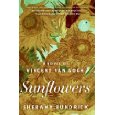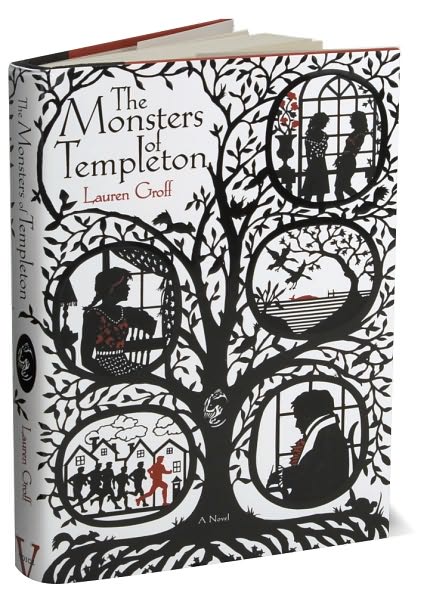I was tagged in this reading meme over on Facebook ages ago, and I never answered. I’ll post my answers over there too, but my blog seemed like a better place for it.
1. What author do you own the most books by?
Well, I own all the Dorothy Dunnetts, including one of the mysteries so she probably wins. Also close would be Mary Wesley and Carol Shields. I can see Alice Hoffman creeping up behind them in the next few years.
2. What book do you own the most copies of?
I own two copies of Carol Shields’s Republic of Love — a paperback, because it has the perfect cover and I can’t let it go (Mum? You know that copy you’re missing,well, erm…heh.) and a hardcover that I bought at the coop used book sale and found it was signed by the author once I got it home.
3. Did it bother you that both those questions ended with a preposition?
Didn’t notice. If they had confused “fewer” with “less” I would have been really upset, however.
4. What fictional character are you secretly in love with?
Is it too utterly wet to admit I have kind of a crush on the hero of the first novel I wrote? And does it count when they are a figment of your imagination, not someone else’s? Apart from that I fear I am a bit of a literary flirt. I can fall madly in love with a character for the length of a novel, and then forget his name once I am finished with the book.
5. What book have you read the most times in your life (excluding children’s picture books)?
Probably either A Tangled Web, The Blue Castle, or Rliia of Ingleside, all by L.M. Montgomery. I am a re-reader though. I read all my favourites many times over.
6. What was your favorite book when you were ten years old?
See the answer to number 5. I’ll also add Eloise Jarvis McGraw’s Greensleeves. I still get something out of that book when I reread it.
7. What is the worst book you’ve read in the past year?
Heh. A certain nameless novel about Barcelona. (Not Shadow of the Wind, which I loved). I learned a lot from it though.
8. What is the best book you’ve read in the last year?
This has been a good twelve months for reading, but I’m going to pick Diane Setterfield’s The Thirteenth Tale for sheer satisfaction.
9. If you could force everyone to read one book, what would it be?
J.R.R. Tolkien’s Lord of the Rings. Hah. And I’d make them read the poetry out loud. Aren’t you all glad I don’t run the world?
10. Who deserves to win the next Nobel Prize for literature?
Difficult, because Doris Lessing just won. I’ll say A.S. Byatt.
11. What book would you most like to see made into a movie?
Vikram Chandra’s Sacred Games
12. What book would you least like to see made into a movie?
I wish I could unsee Possession.
13. Describe your weirdest dream involving a writer, book, or literary character.
I don’t think I’ve ever dreamed about any of these things.
14. What is the most lowbrow book you read as an adult?
I skimmed the Da Vinci Code.
15. What is the most difficult book you’ve ever read?
Derrida’s Of Grammatology. I haven’t got past the Spivak introduction yet. Oh, you mean fiction? Fiction’s not difficult.
16. What is the most obscure Shakespeare play you’ve ever seen?
Probably one of the Henry’s, and I don’t even remember which one…
17. Do you prefer the French or the Russians?
The Russians, of course!
18. Roth or Updike?
Um, I read Witches of Eastwick, and it was fine and all, but…
19. David Sedaris or Dave Eggers?
Oh, please.
20. Shakespeare, Milton, or Chaucer?
Shakespeare. yes, i know I’m a medievalist, but Chaucer isn’t even close.
21. Austin [sic] or Eliot?
Can I trust a literary meme that can’t even spell Jane Austen’s name correctly? I’ve read one Eliot (Middlemarch) and every single Austen that has a beginning, middle, and end, and I’m still going to pick Eliot.
22. What is the biggest or most embarrassing gap in your reading?
Nineteenth and twentieth century fiction from the United States. I’ve read almost none.
23. What is your favorite novel?
Doris Lessing’s The Golden Notebook
24. Favorite play?
Macbeth. And everything of Tom Stoppard’s that I’ve read or seen.
25. Favorite poem?
John Donne is my favourite poet, but my favourite poem of his depends on my mood.
26. Favorite Essay?
Laurie Colwin’s food writing.
27. Favorite short story?
While she’s on my mind, Colwin’s “St. Anthony of the Desert.” Or any of hers, really. I also like Melissa Bank.
28. Favorite work of nonfiction?
I’m going to pick Barbara Tuchman’s A Distant Mirror
29. Favorite writers?
See above.
30. Who is the most overrated writer alive today?
Quoting Julianne: “If you can’t say something nice…”
31. What is your desert island book?
Why wouldn’t I take my favourite book to a desert island? Besides, The Golden Notebook is nice and long.
32. What are you reading now?
Jasper Fforde’s The Eyre Affair. Fun.
Any question you find especially interesting? Answer it in the comments!


